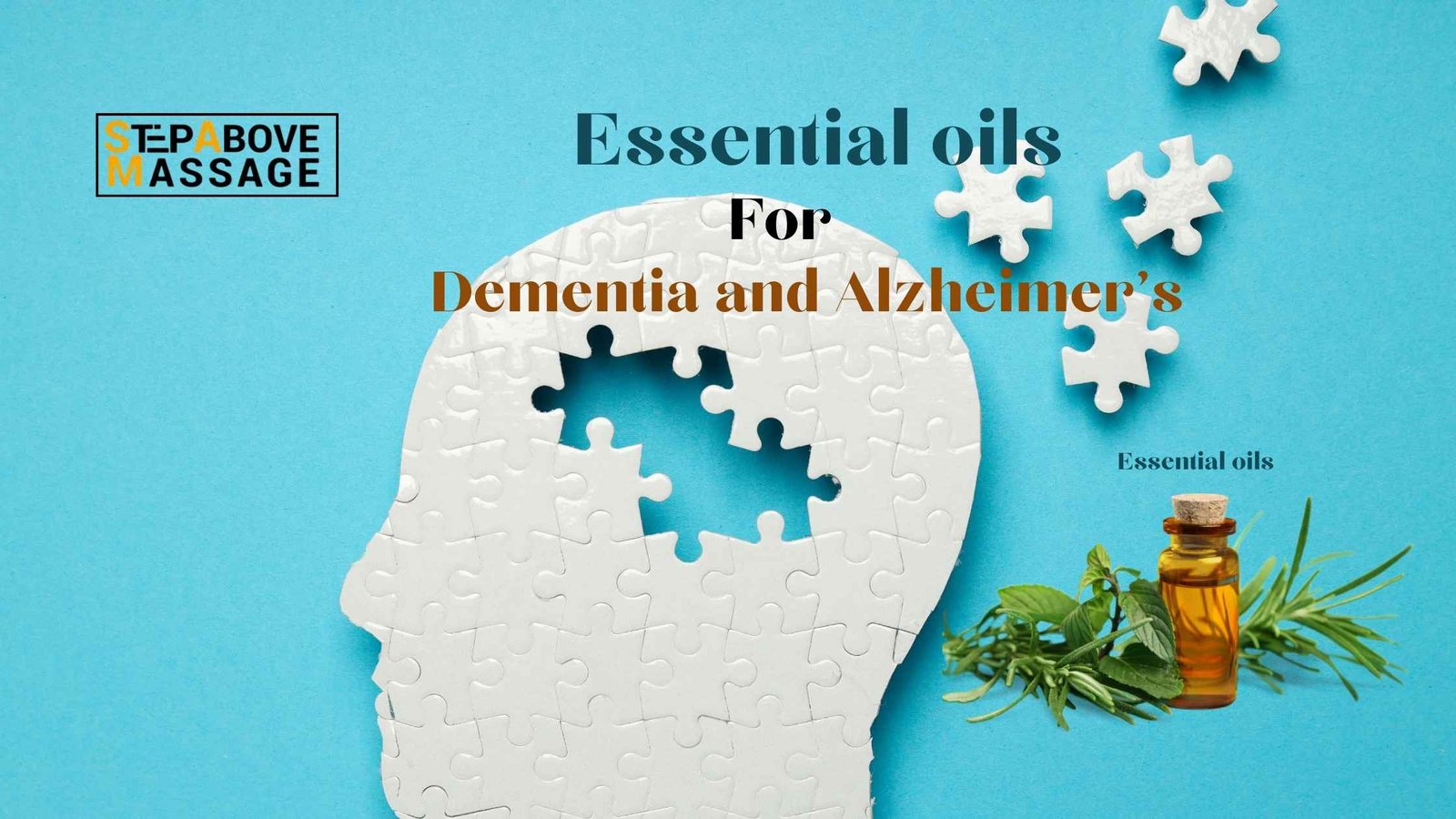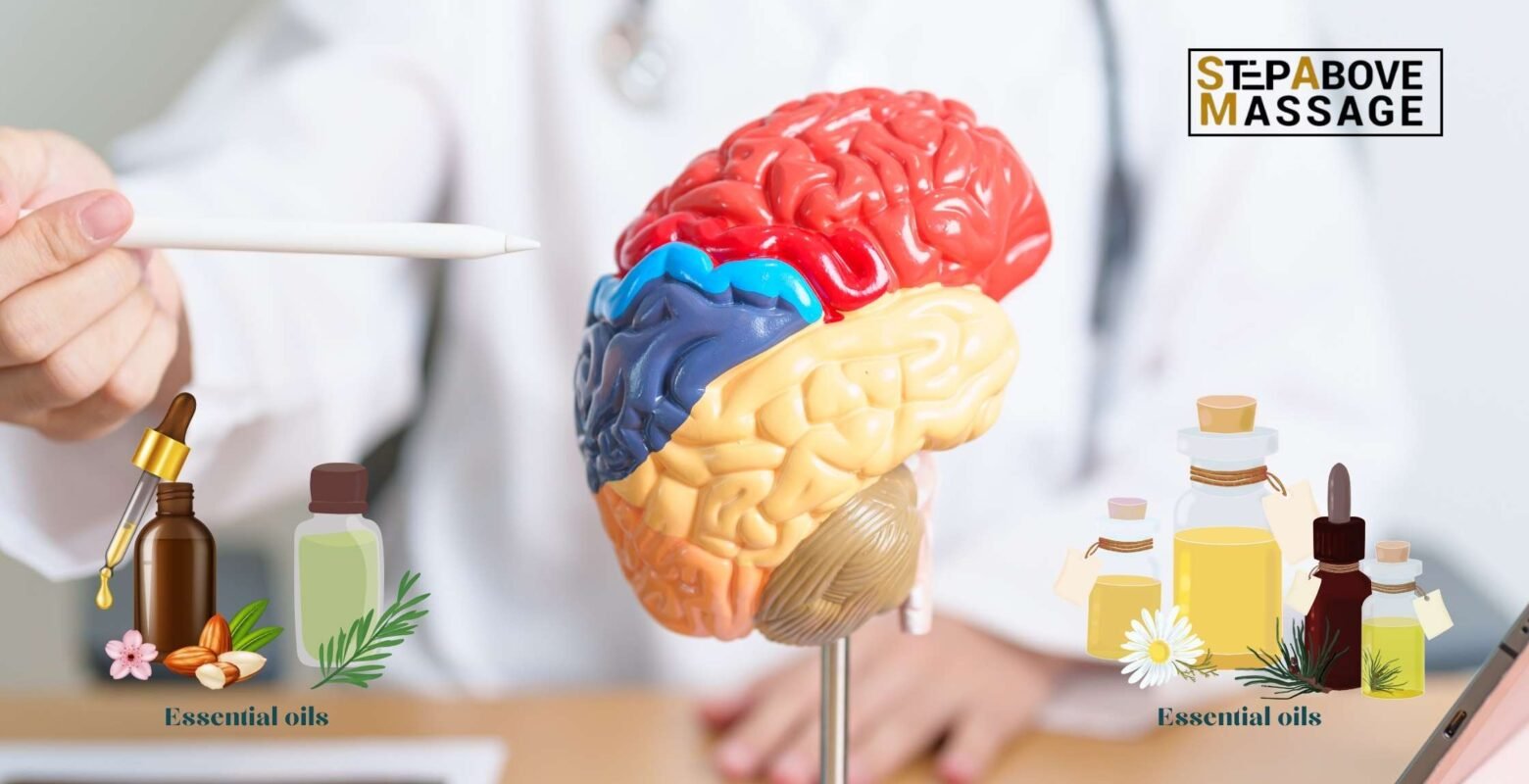Dementia and Alzheimer’s are two of the most challenging neurologic conditions. They represent a huge number of people who are constantly and progressively losing cognitive functions, memory, and behavior, which eventually will lead to debilitating changes or decrease the quality of life of persons who are affected and their caregivers. While traditional medicine offers some treatment options for managing the symptoms, complementary therapy, using essential oils, has gained popularity because of the potential of also alleviating some of the complications associated with the conditions. In this extensive guide, we will talk about using essential oils to manage dementia and Alzheimer’s, their benefits, how to use them, and scientific validation.
Essential Oils for Complications of Dementia and Alzheimer’s

The exact cause of Alzheimer’s is not known but is a combination of genetics, environment, and lifestyle factors. The hallmark is a build-up of beta-amyloid plaques and tau tangles in the brain, triggering or simply being part of a chain leading to brain cell death and, at a later stage, cognitive decline.[/ultimate_heading][ultimate_heading main_heading=”The Role of Essential Oils in Managing Dementia and Alzheimer’s” heading_tag=”h3″ alignment=”left”]Essential oils are highly concentrated, volatile plant extracts with aromatic and bioactive properties. These have been used for many years in various cultures for medicinal benefits. The previous few years have brought a strong focus on essential oils as an alternative way of managing symptoms of dementia and Alzheimer’s. Without having the capability to cure the disease, some of these oils may reduce anxiety, improve sleep, or even increase the feeling of general well-being.[/ultimate_heading][ultimate_heading main_heading=”How Essential Oils Work” heading_tag=”h3″ alignment=”left”]Essential oils contain volatile compounds that, when inhaled, may interact with the limbic system of the body. It is said that the limbic system is closely tied to emotions, memory, and behavior and plays a big role in mood regulation and cognitive function. Responding to inhalation, the aromatic molecules stimulate the olfactory receptors in the nose, sending a message to the brain that may result in emotional and physiological responses.
Moreover, some essential oils contain antioxidants and anti-inflammatory properties, which can protect brain cells from oxidative stress and reduce inflammation, associated with the onset and disease progression of dementia and Alzheimer’s.[/ultimate_heading]
[ultimate_heading main_heading=”Essential Oils for Cognitive Support” heading_tag=”h3″ alignment=”left”]Various essential oils have shown promise in aiding cognitive function and relieving certain symptoms associated with dementia and Alzheimer’s. The following are some that are generally used for that purpose.Lavender Oil
Lavender oil is popularly known to exert calming and relaxing effects. It has already been proven to reduce agitation and enhance sleep in individuals suffering from dementia. Interestingly, the sedative-like properties of lavender oil may suffice not only to treat pain but also to manage anxiety, a well-associated symptom in Alzheimer’s patients.
Rosemary Oil
Rosemary oil is more often linked with enhancing memory. Some studies evidence that rosemary oil enhances cognitive performance and improves concentration. Its stimulating action may help dementia patients in being active and alert, which may eventually lower the rate of decline in their cognitive functioning.
Peppermint Oil
Besides, it has been recognized for the invigorating scent of peppermint oil that relieves fatigue and increases the clarity of one’s mental state. Such effects might be very helpful for patients suffering from dementia, who quite often suffer from feeling confused and having foggy heads.
Frankincense Oil
The anti-inflammatory action of frankincense oil may prevent damage to brain cells. It is said to induce relaxation and reduce stress; therefore, it is an important oil in the management of states of mood swings and disturbances of emotions that occur in dementia and Alzheimer’s disease patients.
Bergamot Oil
The smell of bergamot oil is uplifting yet calming, citrusy, and has been used to treat anxiety and depression, both quite common among people dealing with dementia. Bergamot may uplift the mood and reduce feelings of sadness or hopelessness.
Lemon Balm Oil
Another calming essential oil is lemon balm oil, which has been reported to improve cognitive functions and decrease agitated moods in dementia cases and can also be helpful for dementia patients who become agitated and even aggressive.[/ultimate_heading][ultimate_heading main_heading=”Application Methods of Essential Oils” heading_tag=”h3″ alignment=”left”]Some of the ways that dementia and Alzheimer’s related symptoms can be managed using essential oils would be through the following means:
Aromatherapy Diffusion
The essential oil diffuser is used to disperse the aromatic molecules of essential oils into the air; inhalation causes either a soothing or stimulating effect, depending on the oil used. Such diffusion is a secure and effective means of creating a calming environment for patients with dementia.
Topical Application
They can be diluted with a carrier oil, like coconut or almond oil, and can be applied to the skin. This can provide localized or systemic effects, as the oils will be directly absorbed into the bloodstream. For example, lavender oil can be massaged into the temples to reduce headaches and promote relaxation.
Bathing
A few ticks of essential oil added to a warm bath will maximize the level of relaxation and quality of sleep. For this, bathing with the essential oil will be advantageous for a patient with dementia who finds it disturbing to sleep completely throughout a night of rest.
Inhalation
The essential oils can also be inhaled by direct inhalation from the bottle or by placing a few drops on a handkerchief. This makes inhalation quite convenient for immediate relief in symptoms, such as anxiety or confusion.[/ultimate_heading][ultimate_heading main_heading=”Safety Considerations” heading_tag=”h3″ alignment=”left”]Although essential oils are widely beneficial, their application should be safe, more so in trying to meet the needs of persons with fragile populations with diseases such as dementia and Alzheimer’s. Here are some safety tips to consider:
- Dilution: Essential oils must always be diluted with a carrier before being applied to the skin. This is to prevent cases of irritation or allergic reactions.
- Patch Test: Always conduct a patch test using a new essential oil to find out if there will be any adverse reaction.
- Consultation: Consult a healthcare provider or an aromatherapist certified in this area before using the essential oil, especially if the person has underlying health conditions or is taking medications.
- Avoid Ingestion: Because some individuals are sensitive or allergic, essential oils should not be taken internally unless recommended by a healthcare professional.
[/ultimate_heading][ultimate_heading main_heading=”Scientific Evidence Supporting Essential Oils” heading_tag=”h3″ alignment=”left”]The research that supports using essential oils to manage dementia and Alzheimer’s has grown by a hundredfold. In addition, research shows that some essential oils improve moods, cognitive, and behavioral functions in people with dementia. For example, published in the Journal of Clinical Nursing, a particular study shows that using lavender oil reduces the level of agitation significantly in patients with dementia.
A study published in Psychogeriatrics showed that rosemary and lemon essential oils have cognitive-enhancing effects on dementia patients. The study showed enhanced cognitive performance and memory recall in average people on regular exposure to such oils.
Although more research must be carried out to understand the real mechanisms that underlie these effects, the available evidence seems to nominate essential oils as a useful supplement in the treatment plan for dementia and Alzheimer’s.[/ultimate_heading][ultimate_heading main_heading=”The Emotional and Psychological Benefits of Essential Oils” heading_tag=”h3″ alignment=”left” margin_design_tab_text=””]Apart from being effective physiologically, essential oils serve as emotional and psychological support, both for the patient suffering from dementia and for the caregivers of these patients. There tends to be a lot of emotional turmoil with the development of dementia and Alzheimer’s. Usually, there is a feeling of frustration, anger, and sorrow. Essential oils can help manage these emotions by increasing relaxation, reducing stress, and lifting the mood.
Today, essential oils provide a point of relief—as small as an ‘exhale’—for caregivers, particularly from the measured and hurried pace that caregiving demands. Aromatic sessions provide serenity; therefore, a patient and caregiver can feel moments of calm together.[/ultimate_heading][ultimate_heading main_heading=”Integrating Essential Oils into Daily Care” heading_tag=”h3″ alignment=”left”]The use of essential oils in dementia and Alzheimer’s care provides a quick and easy way to greatly improve quality of life. Here are a few pointers on how to work these oils into regular care:
- Morning: Wake yourself up with powerful, stimulating essential oils such as peppermint or rosemary that sharpen the mind and increase alertness.
- Calming Oils in the Afternoon: Lavender or lemon balm oils in the afternoon, reduce agitation and stimulate relaxation.
- Evening Wind-Down Use a relaxing essential oil like Frankincense or Bergamot during the wind-down time in the evening around bedtime to reduce restlessness and anxiety and improve the quality of sleep.
- Massage therapy: Consider the use of essential oils during therapeutic massage for the enhancement of relaxation and comfort.
Essential oils have come to be a promising complementary strategy in the management of the complications of dementia and Alzheimer’s, toward the improvement of one’s quality of life. While no cure can be attributed to essential oils, they provide enormous support in the calming down of symptoms such as anxiety, agitation, and sleep disturbances. Caregivers can apply daily use of the oils to create an enabling environment that is emotionally and psychologically soothing.
Just like any treatment, one should approach the use of essential oils cautiously and seek professional advice on how to use them safely and effectively. Used correctly, essential oils can become a great tool in the holistic management of dementia and Alzheimer’s.[/ultimate_heading]
Latest post






